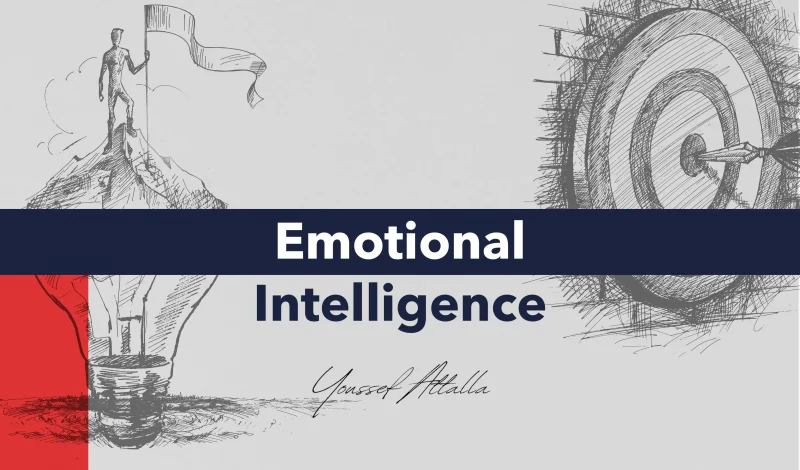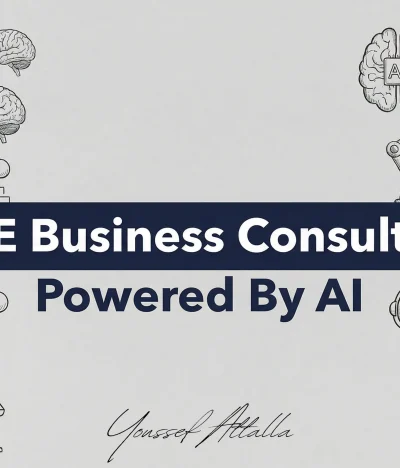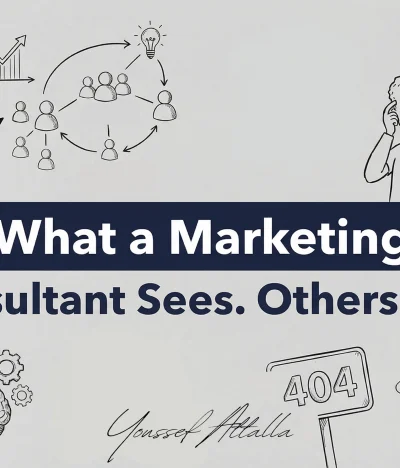The Hidden Power Behind Great Leaders
In today’s fast-paced and interconnected business world, leadership is no longer defined by technical expertise alone. What truly sets successful leaders apart is their ability to connect with people on a deeper level.
This ability stems from emotional intelligence, a skill that, when mastered, offers leaders a powerful competitive advantage.
Emotional intelligence allows leaders to inspire, motivate, and manage people effectively while navigating challenges with empathy and resilience.
In industries like consulting, where trust and relationships drive results, emotional intelligence is becoming a non-negotiable trait for leaders who want to thrive.
What Is Emotional Intelligence in Leadership?
A competitive advantage is the unique edge that sets a leader—or an organization—apart from the competition.
Traditionally, competitive advantage was linked to resources, innovation, or market share. However, in leadership, it increasingly stems from soft skills, especially emotional intelligence.
Leaders who understand emotions—both their own and others’—make better decisions, resolve conflicts faster, and foster high-performing teams. This not only enhances organizational culture but also drives long-term success, which is a true competitive advantage.
The Connection Between Emotional Intelligence and Leadership Success
Understanding Emotional Intelligence
Emotional intelligence is the ability to recognize, understand, and manage emotions while influencing the emotions of others. It consists of self-awareness, self-regulation, empathy, motivation, and social skills. For leaders, these qualities are not optional, they are essential.
Why Emotional Intelligence is a Competitive Advantage
Leaders with high emotional intelligence stand out in several ways:
- They build trust faster with teams and clients.
- They create a workplace where collaboration thrives.
- They are resilient under pressure, adapting quickly to change.
- They excel in consulting and client-facing roles where empathy and communication are crucial.
In short, emotional intelligence fuels the behaviors that give leaders a sustainable competitive advantage over their peers.
Emotional Intelligence in Consulting and Business Growth
In the consulting industry, relationships are everything. Clients don’t just hire consultants for technical expertise, they hire them for trust, guidance, and partnership.
Leaders with strong emotional intelligence excel at listening to clients, understanding unspoken needs, and providing solutions tailored to emotions as well as data.
Here’s how consulting leaders leverage emotional intelligence:
- Better client communication: Understanding tone, body language, and client emotions creates trust.
- Conflict resolution: Consulting often involves sensitive issues; emotionally intelligent leaders defuse tension and maintain professional partnerships.
- Sustainable results: Clients value consultants who not only deliver strategies but also inspire confidence and loyalty.
This connection shows clearly how emotional intelligence provides a measurable competitive advantage in consulting and business leadership.
Real-World Examples of Emotional Intelligence as a Competitive Advantage
Transforming Teams with Empathy
Consider a leader managing a diverse, global team. Technical expertise may unite them on tasks, but it is empathy and cultural sensitivity—key aspects of emotional intelligence—that keep them engaged and aligned.
This level of emotional awareness creates a competitive advantage by reducing turnover and boosting productivity.
Consulting Success Stories
In consulting, leaders who demonstrate emotional intelligence often see higher client retention.
For example, consultants who actively listen and empathize with client frustrations often secure long-term contracts, outperforming competitors who focus only on data and strategy.
How Leaders Can Develop Emotional Intelligence
Emotional intelligence is not a fixed trait, it can be developed over time. Leaders who want to gain a competitive advantage can start with these practices:
- Self-Reflection: Regularly assess your emotional triggers and responses.
- Active Listening: Pay attention not only to words but also to emotions and intentions behind them.
- Empathy Training: Practice putting yourself in others’ shoes, especially in consulting environments.
- Feedback Loops: Encourage honest feedback from colleagues and clients to grow self-awareness.
- Mindfulness and Stress Management: Stay calm under pressure to inspire confidence in others.
By consistently practicing these skills, leaders can transform emotional intelligence into a lasting competitive advantage.
Why Emotional Intelligence Will Shape the Future of Leadership
The business landscape is evolving, and the demand for emotionally intelligent leaders will only grow. With artificial intelligence and automation handling many technical tasks, the human element, empathy, communication, and connection will define future leadership success.
Consulting firms, corporations, and startups alike will prioritize leaders who demonstrate emotional intelligence. Those who cultivate this skill today will enjoy a lasting competitive advantage tomorrow.
The True Edge of Modern Leadership
In a world where technical knowledge is accessible to all, what separates great leaders from good ones is emotional intelligence.
For leaders in consulting and beyond, it is not just a nice-to-have skill, it is the foundation of a true competitive advantage.
By mastering emotional intelligence, leaders can inspire trust, build resilient teams, and deliver sustainable success. Those who embrace it will not only lead effectively but also stand out in an increasingly competitive marketplace.
The True Edge of Modern Leadership
In a world where technical knowledge is accessible to all, what separates great leaders from good ones is emotional intelligence. For leaders in consulting and beyond, it is not just a nice-to-have skill, it is the foundation of a true competitive advantage.
By mastering emotional intelligence, leaders can inspire trust, build resilient teams, and deliver sustainable success. Those who embrace it will not only lead effectively but also stand out in an increasingly competitive marketplace.
This is exactly why experts like Youssef Attallah, consultant and business advisor, emphasize emotional intelligence as a central pillar in leadership development and consulting practices.
His leadership approach demonstrates how empathy, communication, and self-awareness can transform leadership into a lasting competitive advantage, proving that the future belongs to leaders who understand both strategy and human connection.
If you’re ready to strengthen your leadership skills and unlock the power of emotional intelligence, contact us today to learn how Youssef Attallah’s consulting expertise can guide you toward sustainable success.





